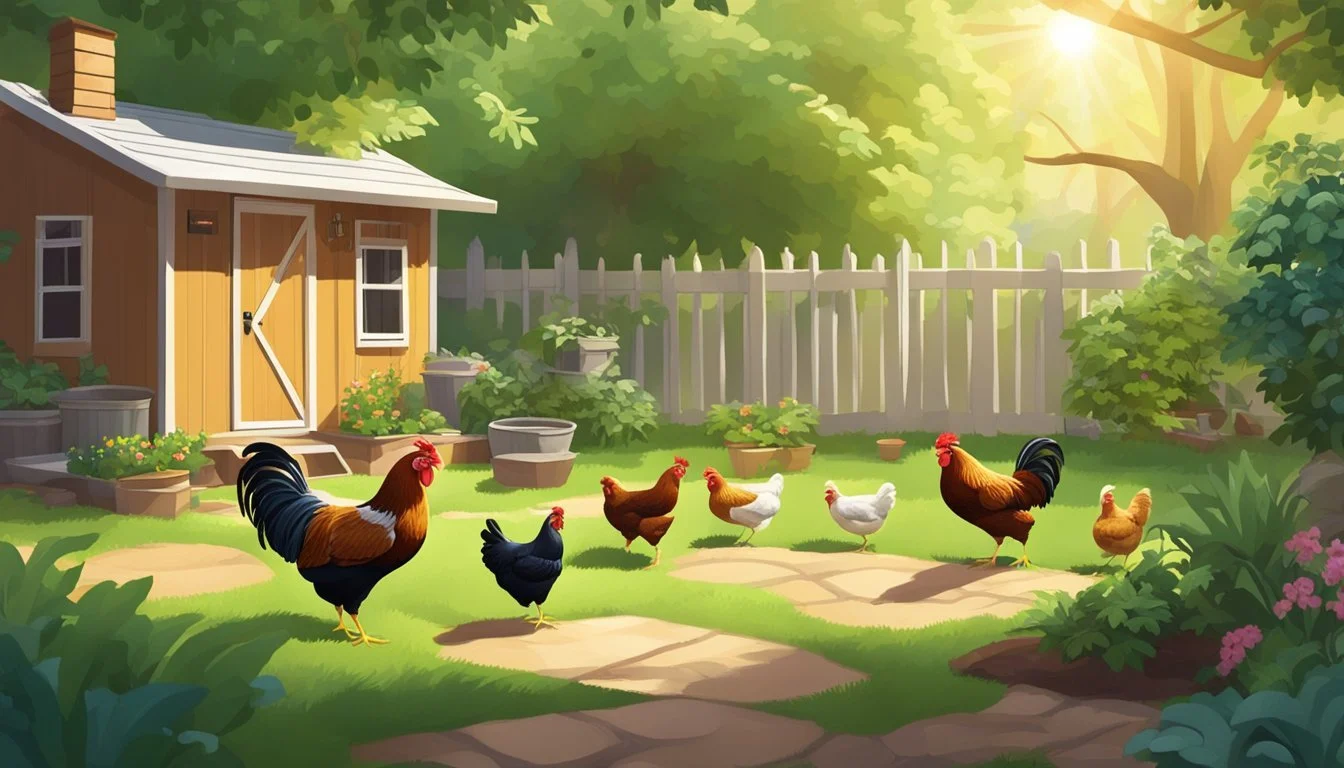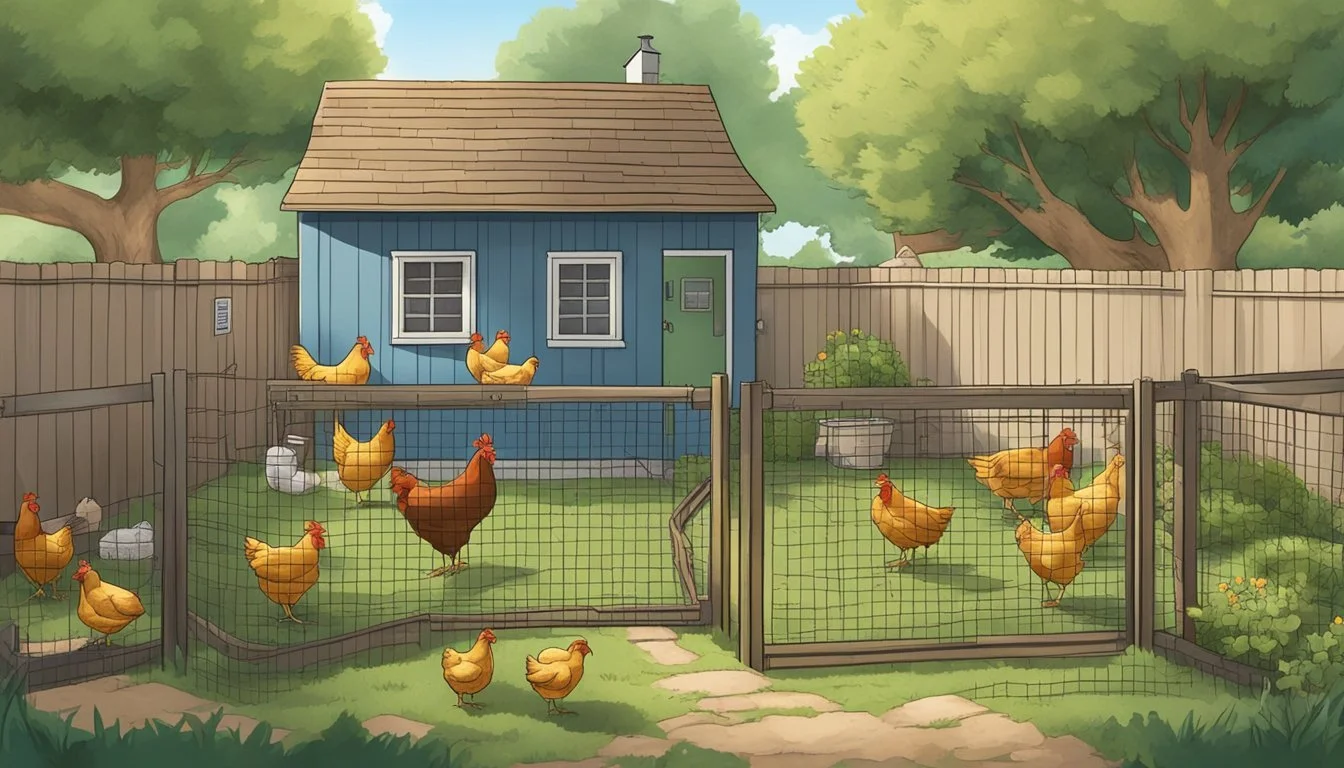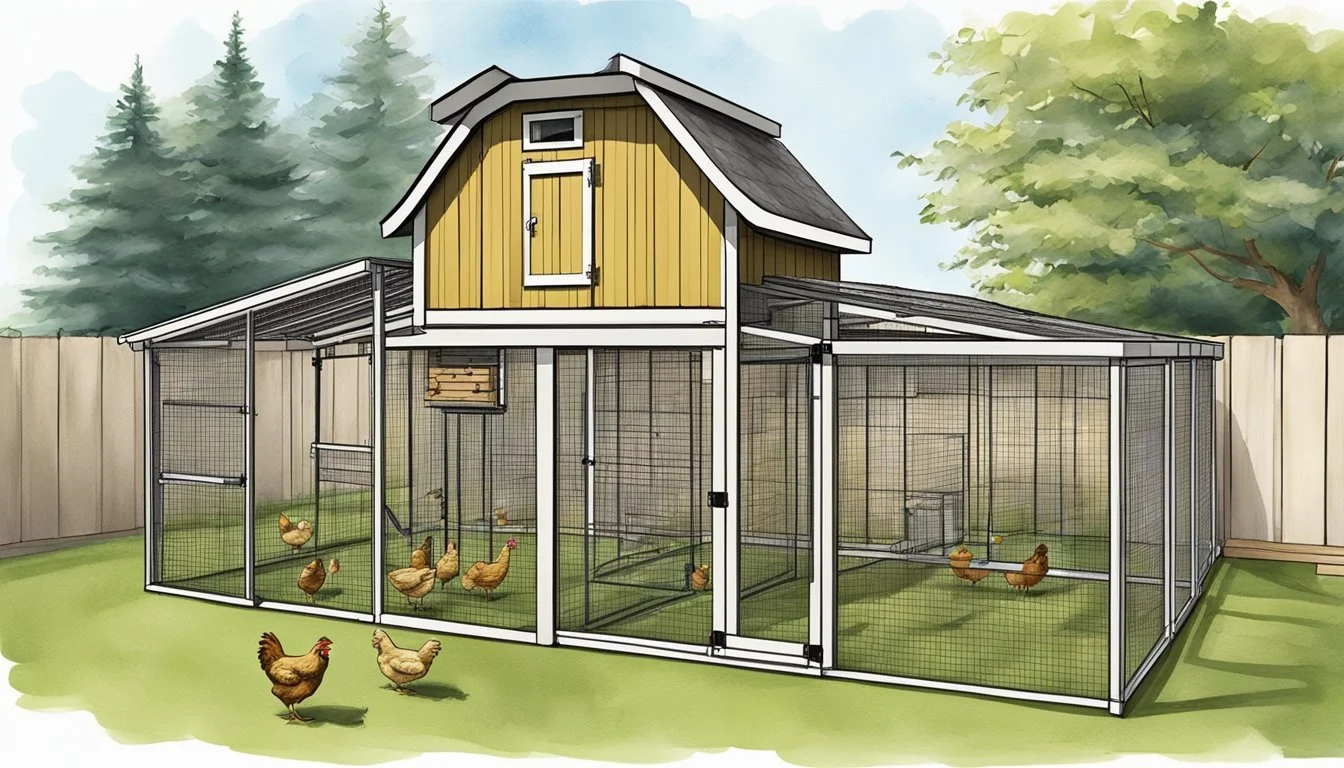Keeping Backyard Chickens in Vancouver, WA
Essential Tips for Urban Poultry Farming
Keeping backyard chickens has become an increasingly popular practice for many residents of Vancouver, Washington, allowing for fresh eggs, natural pest control, and a rewarding hobby that connects them to the urban agriculture movement. The city has recognized this trend and has established clear guidelines to ensure that the keeping of chickens is beneficial for both the homeowners and their neighbors. It's important for residents to understand these regulations to maintain harmony in the community.
In Vancouver, WA, the city code specifies that chickens must be kept within the homeowner's property, either in a secure backyard fence or a coop run. No roosters are allowed within the city limits or its urban growth area to prevent noise disturbances. Homeowners within city limits can keep up to three hens, while those outside city limits, in Vancouver Urban Growth areas, can keep more, provided they manage pests like flies and odors effectively.
By adhering to these regulations, citizens of Vancouver can enjoy the advantages of raising backyard chickens while minimizing any potential nuisances to the neighborhood. This balance is essential for the sustainable integration of small-scale poultry husbandry into the urban environment, offering a slice of country life in the city.
Local Chicken Laws and Regulations
Keeping chickens in Vancouver, WA requires familiarity with specific local laws and regulations. Understanding these rules ensures that residents comply with legal requirements and maintain good relationships with neighbors.
Zoning Regulations in Vancouver, WA
In Vancouver, WA, chickens are allowed in residential areas, but homeowners must adhere to specific zoning regulations. These regulations may dictate where coops can be placed on a property and the allowable distance from property lines, known as setbacks.
Permits and Property Requirements
Residents must often secure a permit to keep chickens. This depends on the number of birds and the size of the property. Building requirements for coops and pens must be met, and it's advised to check with local authorities for the most current information.
Livestock Ordinances
Livestock other than chickens, such as horses, goats, swine, peacocks, ducks, geese, and turkeys, fall under the broader category of livestock ordinances in Clark County. Small livestock, including certain poultry, may not require a livestock plan if it is caged or kept indoors at all times.
Number of Chickens Allowed
Within the city limits of Vancouver, there's a cap on the number of chickens one can keep. Currently, the limit is set at three hens. This number is subject to change, so checking the latest ordinances is recommended.
Prohibitions and Restrictions
The city strictly prohibits the keeping of roosters due to noise concerns. Additional restrictions may apply to other types of poultry or small livestock within urban growth areas and unincorporated Clark County.
Noise and Neighbor Considerations
To minimize noise complaints from neighbors, the city enforces regulations prohibiting roosters. Keeping fewer hens and positioning chicken coops strategically can also help maintain neighborly relations.
Resources for Local Regulations
For the most current information regarding local chicken laws, contact names of relevant organizations or links can be found on city and county websites. It's important to verify the information as regulations can be updated, and the last updated date should always be checked.
Residents of Vancouver, WA must stay updated with these regulations to ensure compliance and community harmony.
Chicken Coop Design and Setup
A well-designed chicken coop is crucial for the health and safety of backyard chickens in Vancouver, WA. This section focuses on key considerations such as location, construction standards, predator defense, and nest box detailing.
Choosing the Right Location
The location of a chicken coop on a property needs to respect local regulations regarding property lines and should not disrupt the neighborhood. Coops are often treated similarly to accessory buildings and must be positioned at certain distances from property lines. Choosing a spot with good drainage will keep the chickens dry and minimize the risk of disease.
Coop Construction Standards
Chicken coops in Vancouver, WA must be sturdy and provide adequate shelter from the elements. The use of durable materials ensures a long-lasting structure that can withstand local weather conditions. Ventilation is essential to maintain air quality, and insulation is important for temperature control. All building materials should be non-toxic to chickens.
Protection from Predators
Security is a top priority for keeping chickens safe. The coop should be designed to prevent both aerial and ground predators from gaining access. Reinforced wire mesh and secure latches can help protect against raccoons, owls, hawks, and other common predators. Regular inspections for vulnerabilities are advised to maintain the coop’s integrity.
Nesting Boxes and Interior Features
Nesting boxes should provide a comfortable and quiet place for hens to lay eggs. Typically, one nesting box for every three to four hens is adequate. Easy access to these boxes for egg collection without disturbing the hens is beneficial. Perches and roost areas should also be incorporated into the coop design. All interior features need to be easy to clean in order to keep the coop sanitary.
Chicken Care and Management
Maintaining a backyard flock in Vancouver, WA, involves ensuring proper feeding, health management, and seasonal care. Selecting the right breeds is also crucial for a successful and fulfilling chicken-keeping experience.
Feeding and Nutrition
Chickens require a balanced diet to lay high-quality eggs and maintain overall health. Starter feeds are essential for chicks, while layer pellets are formulated for egg-laying hens. It's vital to provide clean water at all times and use proper feeders to prevent waste and contamination. A mix of grains, proteins, and greens contributes to a well-rounded diet, supporting growth and productivity.
Health and Hygiene
To prevent the spread of disease in chickens, regular coop cleaning is necessary. Bedding should be replaced frequently, and droppings removed. Vaccinations may be required, depending on local regulations and veterinary advice. Monitoring for signs of illness or distress is a critical aspect of chicken care, as early detection leads to prompt treatment.
Seasonal Care Considerations
During the molting season, chickens shed old feathers and regrow new ones, which can be stressful. Extra proteins in their diet can help support feather regrowth. In colder months, chickens need protection from the cold and wet conditions, while in hot summer months, ample shade and cool water are critical to preventing heat stress.
Breed Selection
Different chicken breeds have varied temperaments, egg-laying capacities, and resilience to local climate conditions. Popular breeds in Vancouver, WA, such as the Rhode Island Red and Plymouth Rock, are known for their hardiness and consistent egg production. Breed selection should consider space constraints, climate, and the keeper’s goals, whether for egg production, meat, or exhibition.
Community and Legal Considerations
When raising backyard chickens in Vancouver, WA, individuals must navigate local ordinances and maintain good relationships with their neighbors. It's essential to understand the differences in regulations between urban and suburban areas and know how to address legal disputes should they arise.
Engaging with Neighbors
Maintaining positive relations with neighbors is crucial. Residents should communicate their intentions and demonstrate how they will keep their chickens confined to avoid any disturbances. An open dialogue can foster understanding and reduce potential complaints regarding noise or odors.
Understanding City vs Suburban Raising
Within the City of Vancouver, backyard chickens are allowed, but certain rules must be followed to ensure compliance with local ordinances:
Chickens must be kept within a secured area, such as a fence or coop run.
Livestock and poultry are defined under specific city regulations.
In suburban areas, raising chickens may also be subject to regulations which can vary in detail, so it is advisable for residents to review their specific locality's laws.
Handling Legal Disputes
In instances of legal disputes, residents should refer to the City of Vancouver's ordinances. They should retain all documentation and consider mediation with neighbors as a first step. For unresolved issues, contacting the relevant city department at (360) 487-7810 can provide guidance on the proper channels for resolution.






